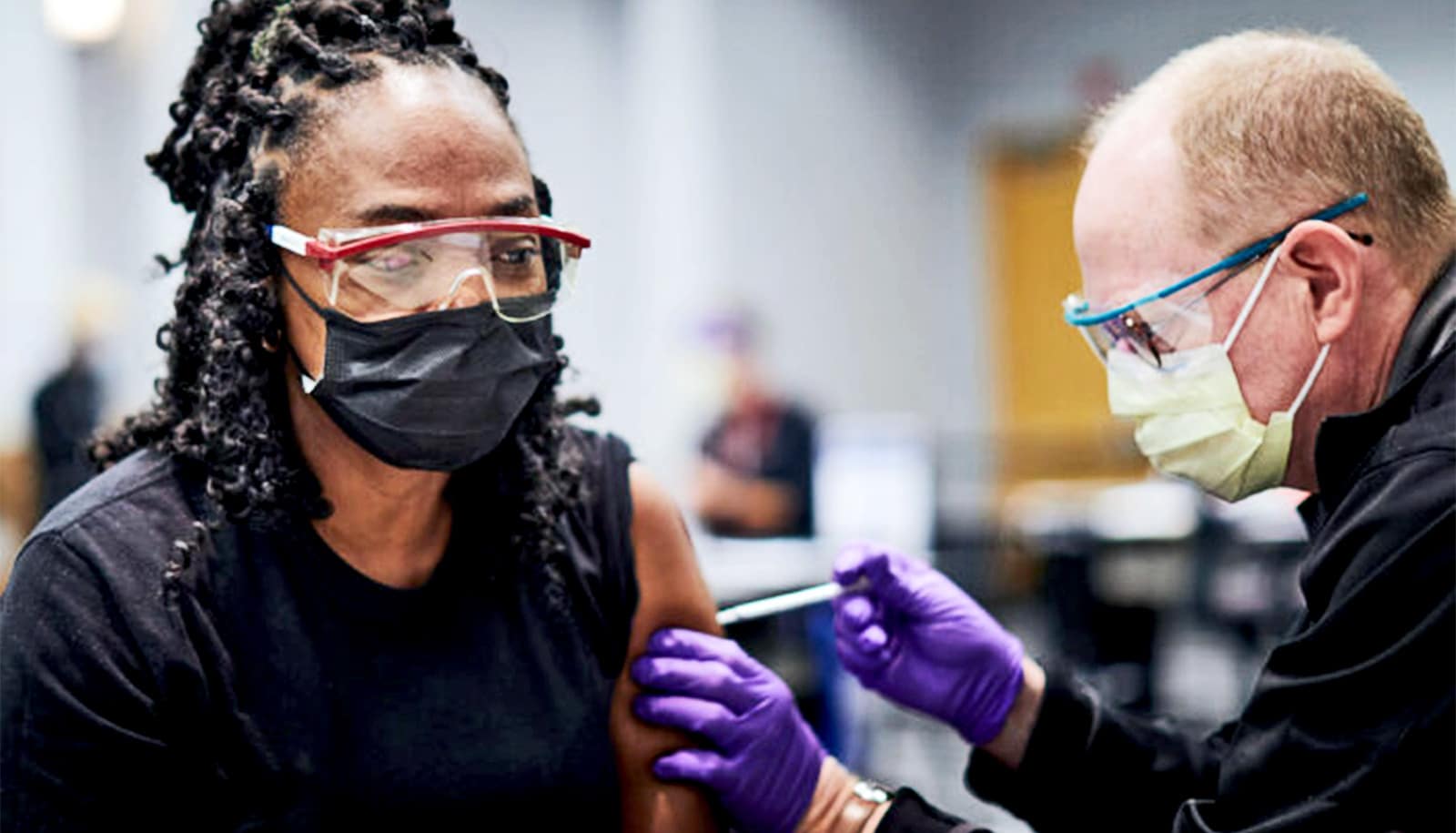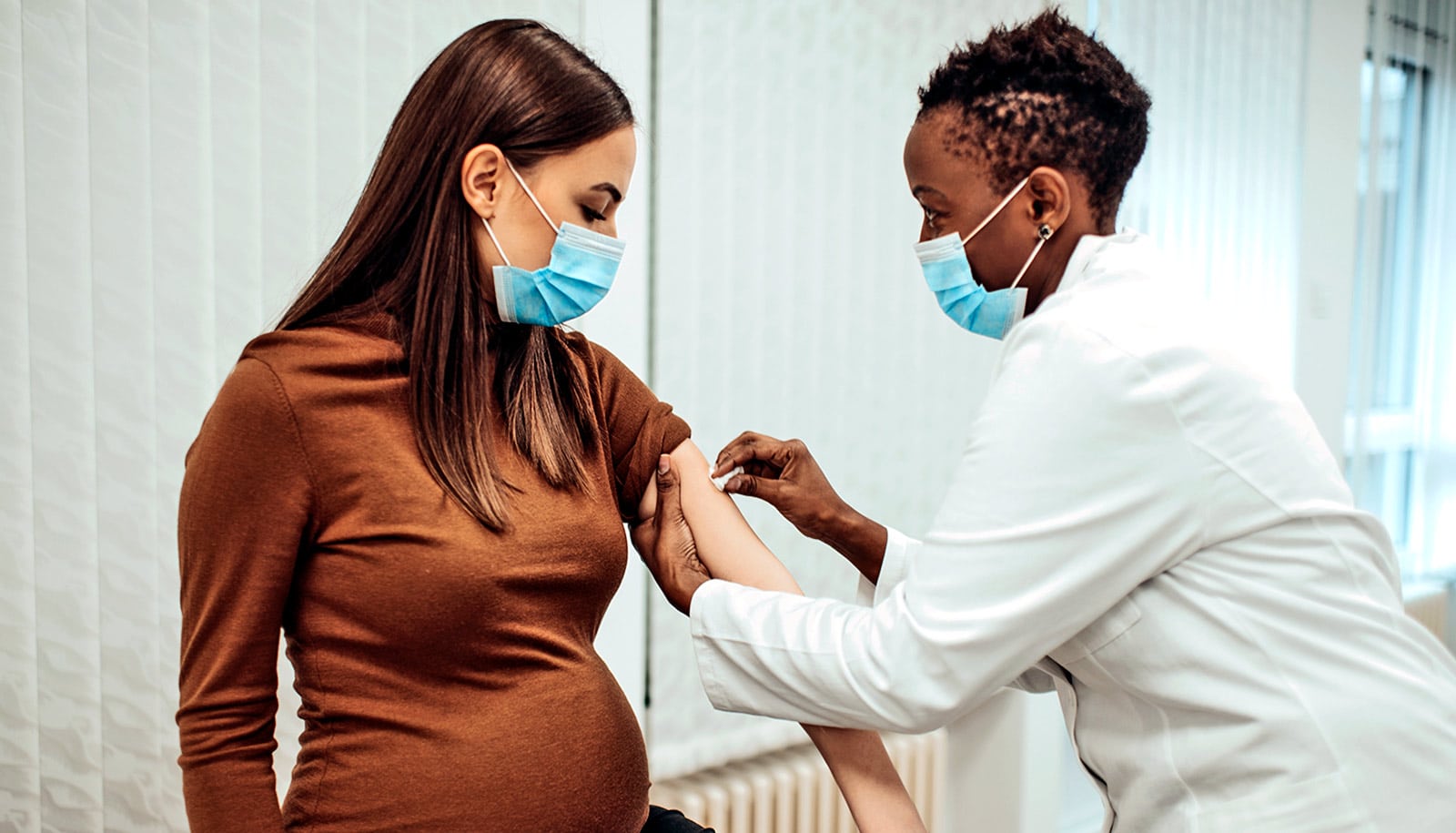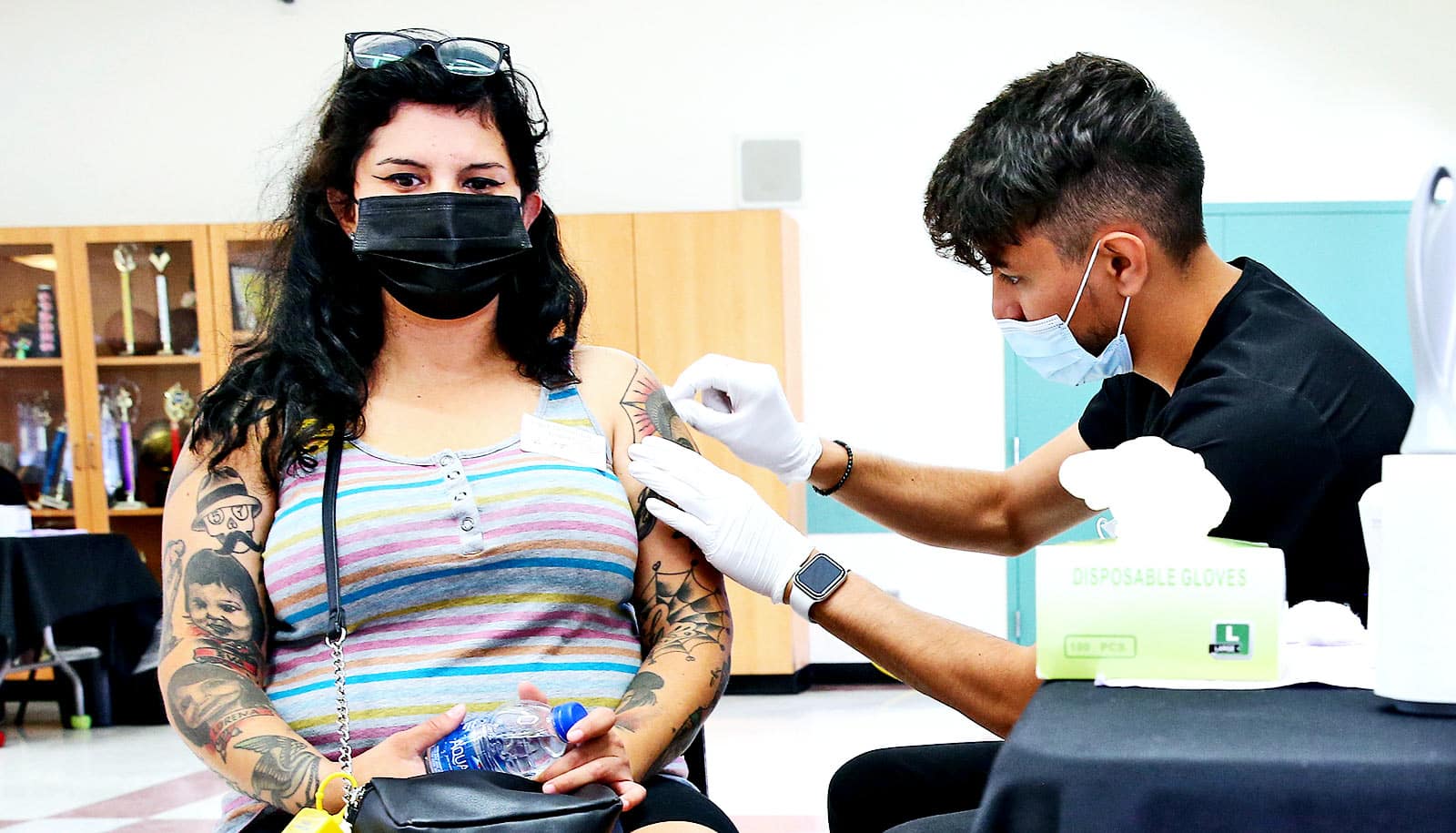People who survived SARS in 2003 and who got the Pfizer-BioNTech mRNA vaccine produce antibodies that can neutralize all known SARS-CoV-2 variants of concern, plus other animal coronaviruses that have the potential to infect humans, research finds.
This study, which appears in The New England Journal of Medicine, is the first to demonstrate cross-neutralizing reactivity in humans. The finding further boosts hopes of developing an effective and broad-spectrum next-generation vaccine against different coronaviruses.
Among the coronavirus family, one sub-group relies on the ACE2 molecule to enter human cells. Both SARS-CoV-1 and SARS-CoV-2 belong to this group as well as a number of coronaviruses circulating in animals such as bats, pangolins, and civets. While the exact route of transmission remains unknown, these viruses have the potential to jump from animals to humans and could start the next pandemic. Collectively, this group of viruses is called sarbecovirus.
“We explored the possibility of inducing pan-sarbecovirus neutralizing antibodies that can block the common human ACE2-virus interaction, which will be protective not only against all known and unknown SARS-CoV-2 VOCs, but also future sarbecoviruses,” says Chee Wah Tan, senior research fellow with the Duke-NUS Emerging Infectious Diseases (EID) program and co-first author of the study.
To test their hypothesis, researchers recruited eight people who recovered from SARS-CoV-1, which was responsible for the 2003 SARS epidemic, as well as 10 healthy people and 10 COVID-19 survivors. They then compared the immune response of the three groups before and after they were vaccinated with the SARS-CoV-2 vaccine.
In particular, they wanted to understand whether the neutralizing antibodies developed in the SARS-Vaccinated group could wipe out both SARS-CoV-1 and SARS-CoV-2 viruses as well as other sarbecoviruses, including potentially zoonotic sarbecoviruses that have been identified in bats and pangolins.
“Prior to vaccination, SARS-CoV-1 survivors had detectable neutralizing antibodies against SARS-CoV-1 but no or low-level anti-SARS-CoV-2 neutralizing antibodies. After receiving two doses of the mRNA vaccine, all displayed high levels of neutralizing antibodies against both SARS-CoV-1 and SARS-CoV-2,” says Wanni Chia, research fellow at the Duke-NUS EID program and co-first author of the study.
“Most importantly, they are the only group with a broad spectrum of neutralizing antibodies against 10 sarbecoviruses that were chosen to be examined.”
“Our study points to a novel strategy for the development of next-generation vaccines, which will not only help us control the current COVID-19 pandemic, but may also prevent or reduce the risk of future pandemics caused by related viruses,” says professor Wang Linfa from the Duke-NUS EID program, senior corresponding author of this study.
“As emerging variants of concern have already demonstrated some degree of immune evasion against the first-generation vaccines, this discovery has the potential to address that problem as the world continues COVID-19 vaccination to exit the pandemic. In addition, this can potentially act as a highly promising preventive vaccine against future coronavirus pandemics.”
The team is currently conducting a proof-of-concept study to develop a third-generation vaccine against different coronaviruses (3GCoVax) as well as broad neutralizing antibodies for therapy and is looking to recruit individuals who recovered from SARS infection in 2003. For those who would like to take part in ongoing studies, please contact scrn@ncid.sg.
Source: Duke-NUS



